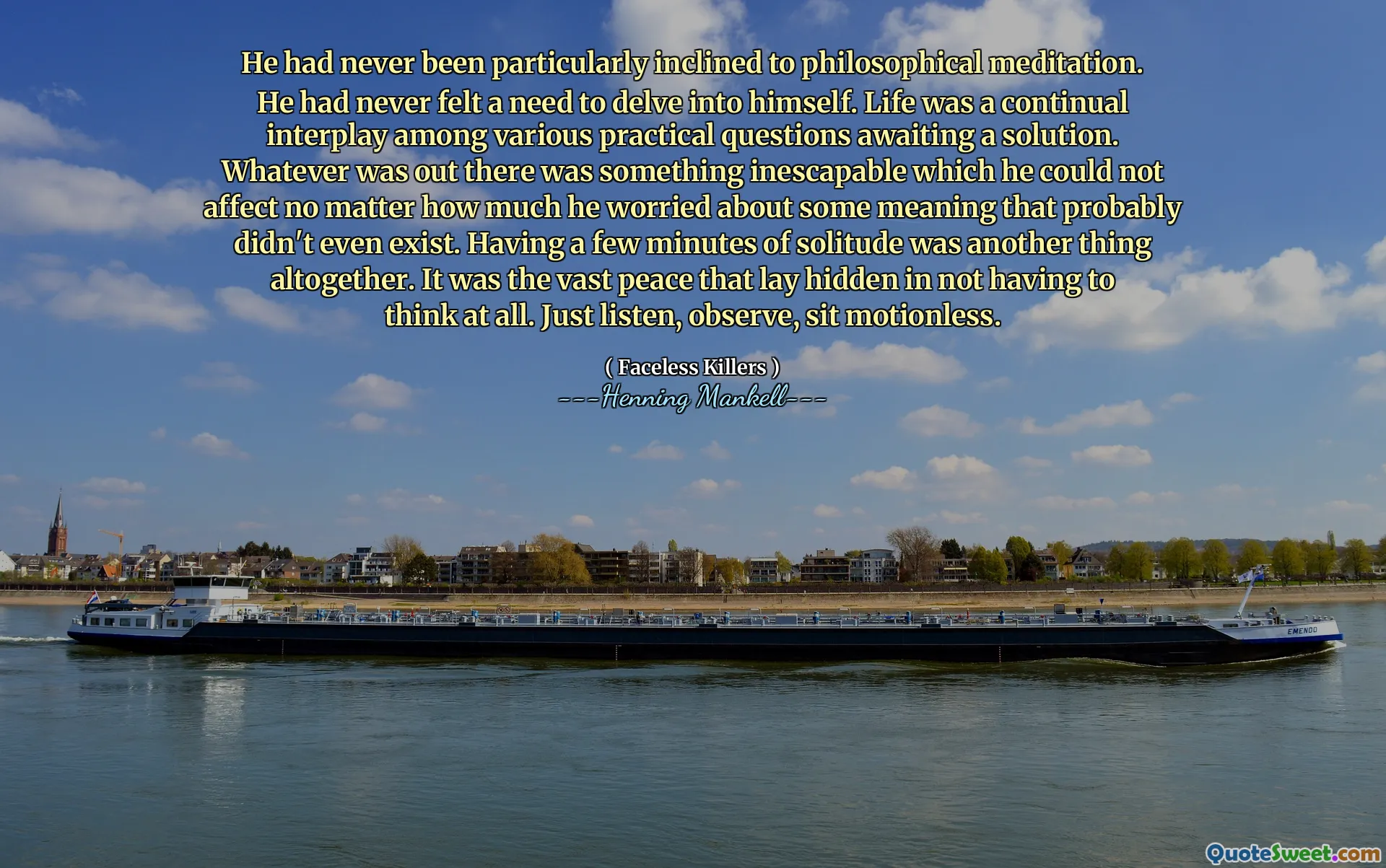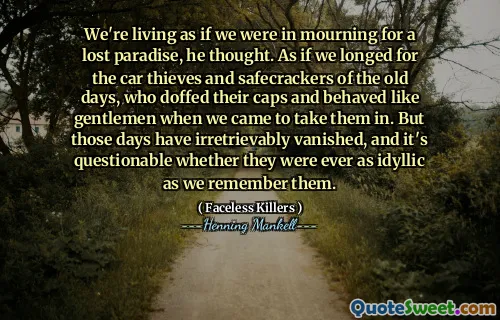
He had never been particularly inclined to philosophical meditation. He had never felt a need to delve into himself. Life was a continual interplay among various practical questions awaiting a solution. Whatever was out there was something inescapable which he could not affect no matter how much he worried about some meaning that probably didn't even exist. Having a few minutes of solitude was another thing altogether. It was the vast peace that lay hidden in not having to think at all. Just listen, observe, sit motionless.
The character in Henning Mankell's "Faceless Killers" reflects on his lack of interest in philosophical pondering. He views life as a series of practical challenges to address, feeling that worrying about existential meanings is futile. To him, the external world presents unavoidable realities that cannot be influenced by his thoughts or concerns.
He finds solace in moments of solitude, which offers a profound sense of tranquility. Rather than engaging in deep contemplation, he appreciates the peace that comes with simply observing and being present. This tranquility arises from a release of the need to think, allowing him to experience a deeper form of stillness and clarity amidst life's complexities.











